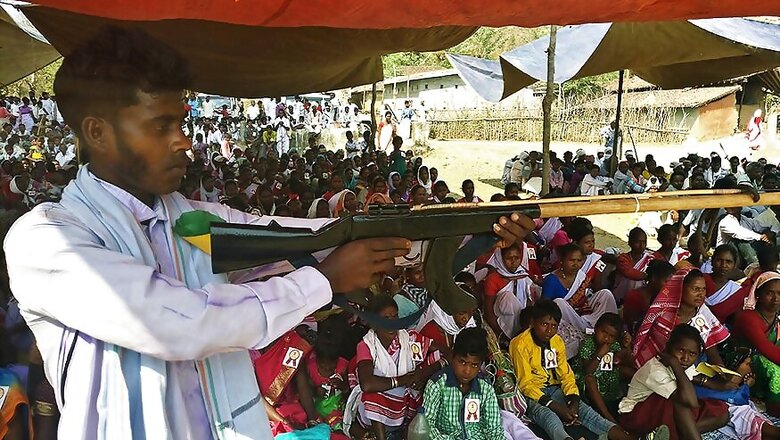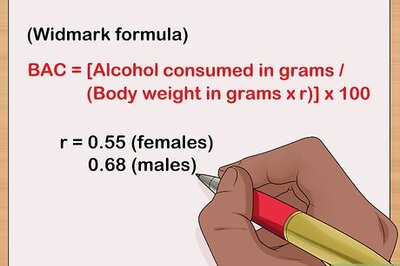
views
After months of lull in tribal areas of Jharkhand, Odisha, Chhattisgarh and Madhya Pradesh, the tribal exclusionist movement, Patthargarhi, is stirring up again.
According to sources, in the wake of the Supreme Court order on the Forest Rights Act after which 23 million forest dwellers face eviction, reports of mobilisation of adivasis for Patthargarhi have been received by security agencies.
News18 had earlier reported on the Patthargarhi movement and on the impact that the recent Supreme Court order is likely to have on forest dwellers in India.
News18 has received several documents being circulated through social media in the central Indian tribal belt. Among them are enrolment forms for the Patthargarhi ‘governments’, and pamphlets distributed by the women’s wing of CPI (Maoist), the Nari Mukti Sangh.
The Patthargarhi movement, named after the symbolic act of placing a stone outside a village with an inscription declaring and explaining self-rule, had reached fever pitch in summer last year.
However, arrests of senior leaders running the Patthargarhi movement, coupled with a massive crackdown on poppy trade that many had linked to the rise in such exclusionist movements, had reduced confrontation between civilians and security forces.
Security agencies had also suspected a relationship between expanding Maoist influence and the rise of self-rule movement in central Indian tribal belt. A few encounters that took out the top leadership of local Maoist leaders also helped the forces in reining in Patthargarhi.
However, sources say, agencies they have recorded a spurt in the inputs suggesting a massive mobilisation that could re-kindle the civilian-security force confrontation.
The Supreme Court’s recent order to evict more than 10 lakh families, including tribal and traditional forest-dwellers across 16 states, who live in forest areas has raised concern in several quarters.
The order, which has come just before the announcement of Lok Sabha elections schedule, has the potential to dent the ruling BJP’s prospects. It has given the opposition parties a weapon to attack the central government with as its lawyers did not defend the Forest Rights Act which protects adivasis.
The latest data (December 2018) available with the Ministry of Tribal Affairs (MoTA), the nodal ministry for FRA, shows that out of 42.19 lakh claims made, only 18.89 have been accepted. Therefore, there are more than 23 lakh tribal and forest dwelling families who can still face eviction. The Supreme Court had stayed its order on February 28 and will now hear the matter on July 10.

















Comments
0 comment